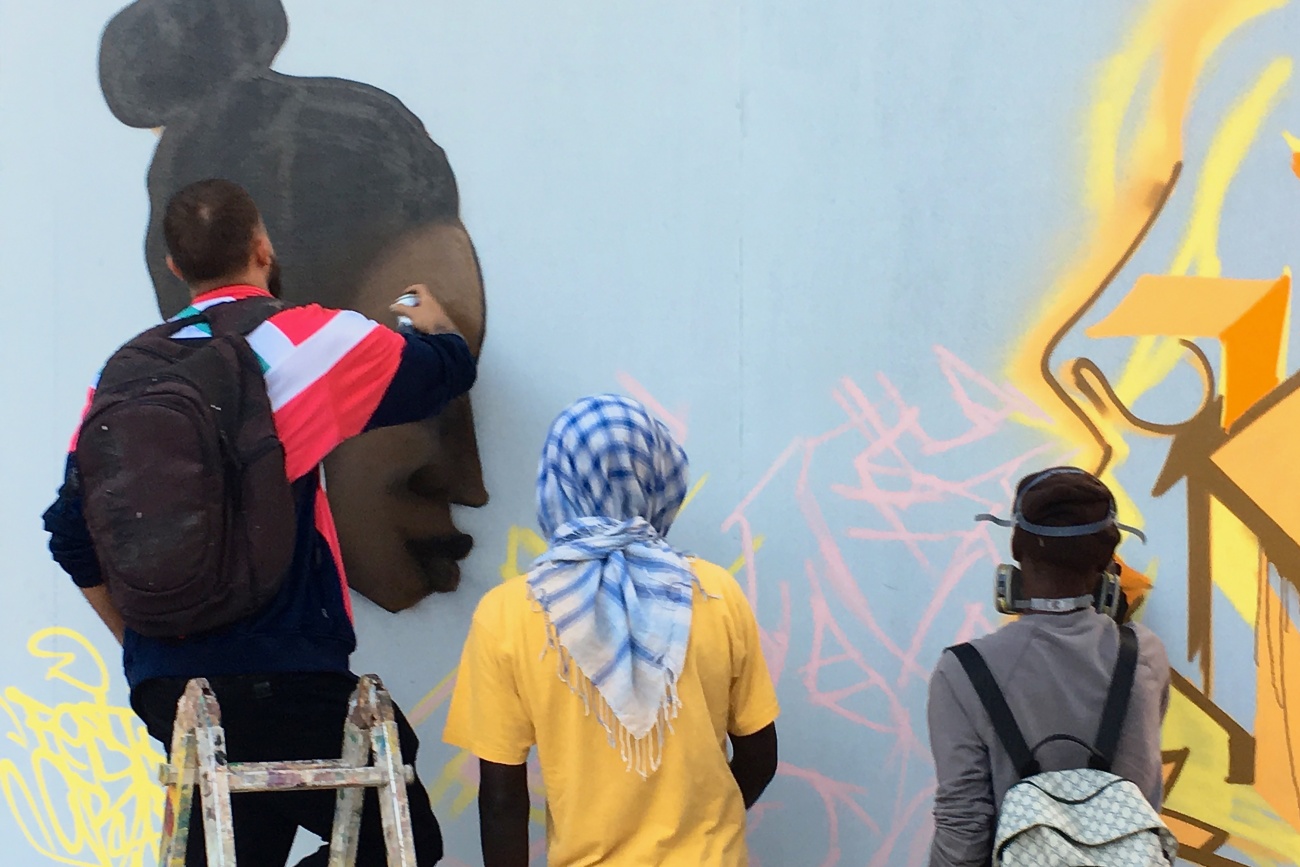
Made-in-Kinshasa: boundless creativity revealed in city's first culture survey
Kinshasa, a UNESCO Creative City of Music, bears witness to the rapid growth of creative initiatives, movements and explorations. Despite this creative boom, no thorough study on urban cultures - all cultural, artistic and sporting practices stemming from urban space – had been conducted. This lack of an overview not only fails to recognize the work of cultural actors in Kinshasa, but also makes it difficult to create and implement cultural policies to address the real needs on the ground. The project Strengthening urban cultures in Kinshasa, funded by the International Fund for Cultural Diversity (IFCD), was developed to fill this knowledge gap.
Racine Alternative ASBL is an organisation working for the promotion of the contemporary Congolese culture through various programmes with a special focus on Hip Hop. “In Congo, a complete system of cultural policy is yet to be established. We are not sure about the number of Congolese artists; we have no idea how many cultural sectors exist. No cooperation or coordination took place to connect the stakeholders. Public authorities don’t understand the cultural landscape. That’s why we initiated this project”, says Alex Dende, the director of this project and an emblematic figure of Congolese Hip Hop commonly known as Lexxus.
cfestivalairdici_1.jpg

This survey established a valuable database of urban cultural activities in Kinshasa. For example, the most popular activity is rap, representing 34.5% among all the disciplines. People between the age 10-25 year are most interested in urban cultures, accounting for 48%. Statistics reveal the trends of urban cultures in Kinshasa, laying a solid foundation for the country’s future cultural policies.
This overview of urban cultures will empower Congolese civil society organizations to initiate a dialogue with the public authorities. Backed by statistical evidences, cultural advocates can express their needs and make suggestions for future cultural policies more easily.
Sketching the future of Congolese culture
The map of Kinshasa’s culture is only the first step. Racine Alternative is currently developing Scult Kin, an online platform that provides a panorama of urban cultures in Kinshasa. “This is a tool to connect all the actors of urban cultures. There are so many artists and associations, but many of them don’t even know the existence of each other. It’s important for us to unite together as a force to express our needs to public authorities”, explains Lexxus.
A physical network of arts professionals to compliment the online community is also essential. A four-day professional training for cultural professionals was conducted in partnership with the French Institute on subjects such as cultural communication, leadership and cultural management.
cfestivalairdici.jpg

To Lexxus, working on the roadmap is like sketching the future of Kinshasa’s cultural landscape. “I hope that one day this center will come true. Our young people need access to culture. Voice of artists needs to be heard by the authority. Together, we will professionalize our Congolese cultural sector. ”
